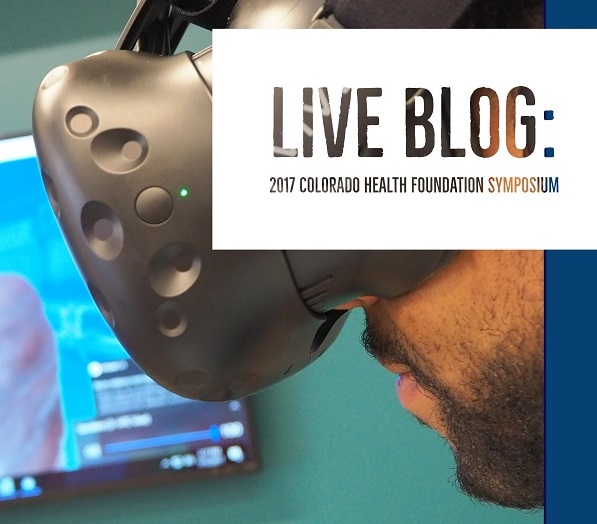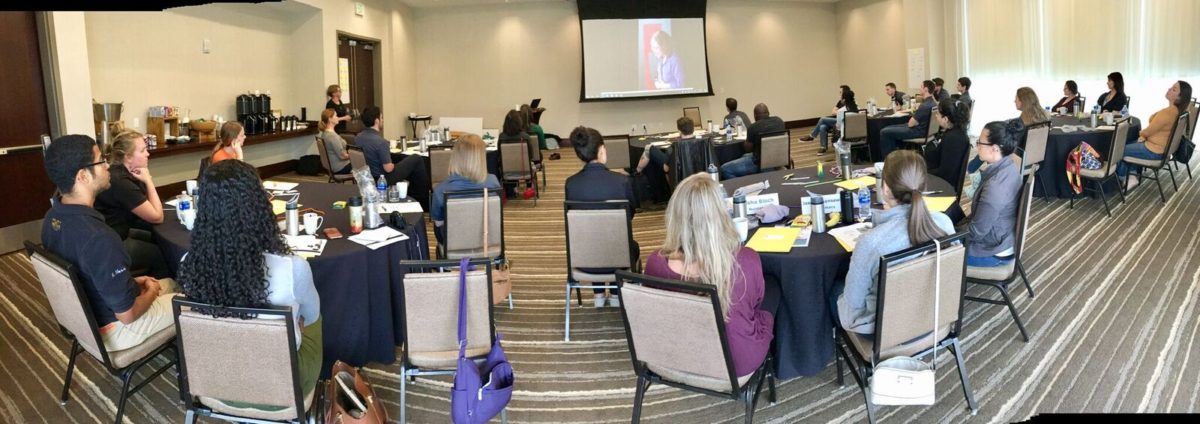AUGUST 3, 2017 4:00 p.m. And it’s a wrap! After one final virtual reality demo lab, we are packing up and heading home to the National Behavioral Health Innovation office on the CU Anschutz Medical Campus. We were delighted by the many people who stopped by to learn and engage.
Finding Resiliency in a Pressure Cooker
Stress. Depression. Anxiety. Even suicide. All are part of the CU Anschutz Medical Campus, where mental health resiliency can be overlooked as a vital part of success. It is time to change that, according to Resiliency Psychologist for the CU School of Medicine, Abbie Beacham, PhD. “Being in a professional training or a graduate school is extremely stressful,” she explains. …
Coronavirus: Recognizing the Upsides Now – For Later A Directors Perspective from the National Mental Health Innovation Center
Just like that, remote classrooms have been going live starting the week of March 16 and continue to host online classes out of necessity. Teachers and students alike, most for the first time, are thrown into a new reality of doing school remotely, some within a matter of days. Modified learning plans and digital classrooms have been created – seemingly overnight.
Insights into the use of Ketamine for Depression
Last month the F.D.A. approved the use of esketamine as an antidepressant for individuals that have tried at least two other treatments for depression. Esketamine is the first ketamine-derived medicine, meaning that it is molecularly part of ketamine. At NMHIC, we have been aware of the use of ketamine for depression, but for a majority of the population this is surprising use case. Ketamine is often associated with veterinary medicine and is featured on websites focused on the warning signs of drug use in children.
Mental Health in the Time of COVID-19
It is no secret that there are a lot of charities a donor can contribute to. According to the National Center for Charitable Statistics (NCCS), over 1.5M nonprofit organizations are registered in the United States alone! Where does a donor begin when they want to make an impact and be philanthropic? I am fortunate to have the unique job to …
Mental Health and Wellness Tech Innovation in Response to COVID-19
It is no secret that there are a lot of charities a donor can contribute to. According to the National Center for Charitable Statistics (NCCS), over 1.5M nonprofit organizations are registered in the United States alone! Where does a donor begin when they want to make an impact and be philanthropic? I am fortunate to have the unique job to …
NMHIC in Tucson, Arizona: VR Healthcare Symposium
Matt Vogl and Debbie Boeldt recently attended the 3rd Annual VR and Healthcare Symposium in Tucson, AZ. The conference brings together leaders in virtual reality (VR) in healthcare. It was an exciting opportunity to hear about new and innovative ways that VR is being applied in medical settings.
Student Experiences During a Pandemic
I vividly remember the wild 24 hours from when I received the email that I would spend the rest of my spring semester of college at home, to the moment I stepped off my plane and greeted my family. I had just finished hosting my radio show and was sitting with a few of my friends when I read the email. It was somewhat apocalyptic: as I walked to my dorm, everyone was on their phone, talking to their parents, crying, and hugging. The next 18 hours were filled with prepping for midterms, saying goodbye, and trying to pack up my college life in one small duffel bag, all while trying to squeeze in the social (okay partying) aspects of my college experience.
Tips for Therapists Conducting Teletherapy in Response to COVID-19 Recommendations
Many therapists and agencies have started to offer teletherapy for people they are providing mental health services to. These tips apply to video therapy – where therapist and client participate in the session using a video platform.
Privilege and Vulnerability During the COVID-19 Pandemic
As “suggested” social distancing has turned into stay-at-home or shelter-in-place orders in the past few weeks, the stories from national to local to personal around COVID-19 are becoming dire. As governments struggle to detect and contain COVID-19, they are forced to build on imperfect and fragile healthcare systems, to which large fractions of the population do not currently have access.


